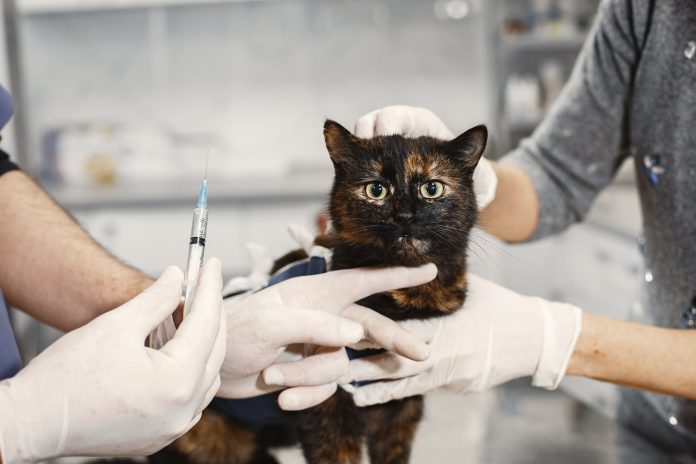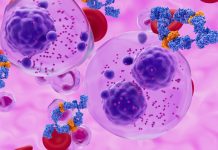Roxane Feller, Secretary General of AnimalhealthEurope, explains to us canvassing public awareness on the benefits of veterinary medicines
When you’ve been working in a sector for a given number of years, it’s easy to forget that not everyone knows the subject matter as well as those working in that sector. And a lack of awareness on certain matters pertaining to animal health, the use of veterinary medicines and livestock farming in Europe can often lead to misunderstandings and misinformed news stories.
What do people in Europe know about animal health?
AnimalhealthEurope wanted to understand better what people in Europe know about the animal health sector and so a survey was commissioned across eight European countries (Sweden, Norway, Denmark, Germany, the Netherlands, Poland, Spain and the United Kingdom) to canvas the knowledge and opinions of citizens on the use of veterinary medicines for the treatment and prevention of diseases in pets and farm animals.
Unsurprisingly for those not associated with the industry, findings showed a lack of awareness of the rules for the use of veterinary medicines, and some citizens express concerns about the use of certain medicines. In a more positive vein, it was encouraging to see that years of communicating on the numerous benefits of healthy animals showed people expressing an awareness of the benefits of the use of veterinary medicines for both animal welfare and sustainable food production.
With vaccination in the spotlight at the moment linked to human health and the COVID-19 pandemic, findings on the use and benefits of animal vaccination were extremely positive. When it comes to farm animals, for example, the vast majority of respondents agreed on the importance of vaccination, with 69% agreeing farm animals should be vaccinated regularly, and 74% agreeing that for farm animals, it is better to prevent disease than to cure it. Furthermore, 61% said that regular vaccination can help to reduce the need to use veterinary antibiotics on farms.
The lack of knowledge on the rules and regulations on the use of veterinary medicines, however, demonstrated that there is still some work to be done in terms of communicating on hot topics often in the media, such as antibiotic use in animals and antimicrobial resistance development. For example, 40% of respondents erroneously believed that organic farms are not allowed to use veterinary antibiotics. It is a wonder how organic farmers would then be expected to care for and ensure the good welfare of any animals falling ill with a bacterial infection.
Longer-term changes to rules on the use of antibiotics for animals were also still quite unknown. 59% were unaware that the use of hormones as growth promoters in farming has not been allowed in Europe for 30 years already, and 62% don’t know that the use of veterinary antibiotics as growth promoters in farming is not allowed either, a practice that was banned 15 years ago Europe-wide.
Awareness of the benefits of veterinary medicines for both animal welfare and food safety was good nevertheless, and just over three-quarters of respondents also stated a belief that healthy farm animals enable farmers to produce and supply food in a sustainable manner. This echoes a key message from the animal health sector that healthy animals can contribute effectively to sustainable development goals and the European Green Deal.
African Swine Fever (ASF)
According to the OIE, more than 20% of global animal protein is lost because of animal disease, and this can dramatically impact not only animal welfare, but on farmer livelihoods and the climate impact of livestock farming. Let’s put this into context with a current example of an animal disease that does not currently have a treatment or vaccination available: African Swine Fever (ASF). Poland has reported outbreaks of ASF on more than 340 farms to date. With a huge surge of the disease in 2020 in Poland, it eventually spread into neighbouring Germany in September of that year. The impacts have been felt worldwide with exports blocked and culling of pigs in certain affected areas.
Aside from the welfare and economic impacts, a modelling exercise outlined by Dr Jude Capper at an expert panel during the 2021 Global Forum for Food and Agriculture examined the effects of ASF on pork production and GHG emissions. With 100-150 million pigs lost to either death or culling, this meant 30.2 – 45.3 million tonnes of GHG emissions were invested in producing pigs that would not reach the global food supply chain. And the pig meat lost could have supplied 550-824 million people with their annual pork consumption.
African Swine Fever is perhaps a more extreme case to demonstrate the importance of ensuring good animal health, but it serves to highlight well the many areas affected by animal disease. It is clear that the animal health industry, alongside its food chain counterparts, will continue to promote the benefits of taking preventive measures on farms such as biosecurity and animal vaccination where available.
Animal health policy priorities
And we would encourage the EU and national governments to help facilitate animal disease detection and prevention and actively support the uptake of the technologies and preventive tools for veterinarians and farmers to help improve animal health and welfare and support sustainable farming practices.











